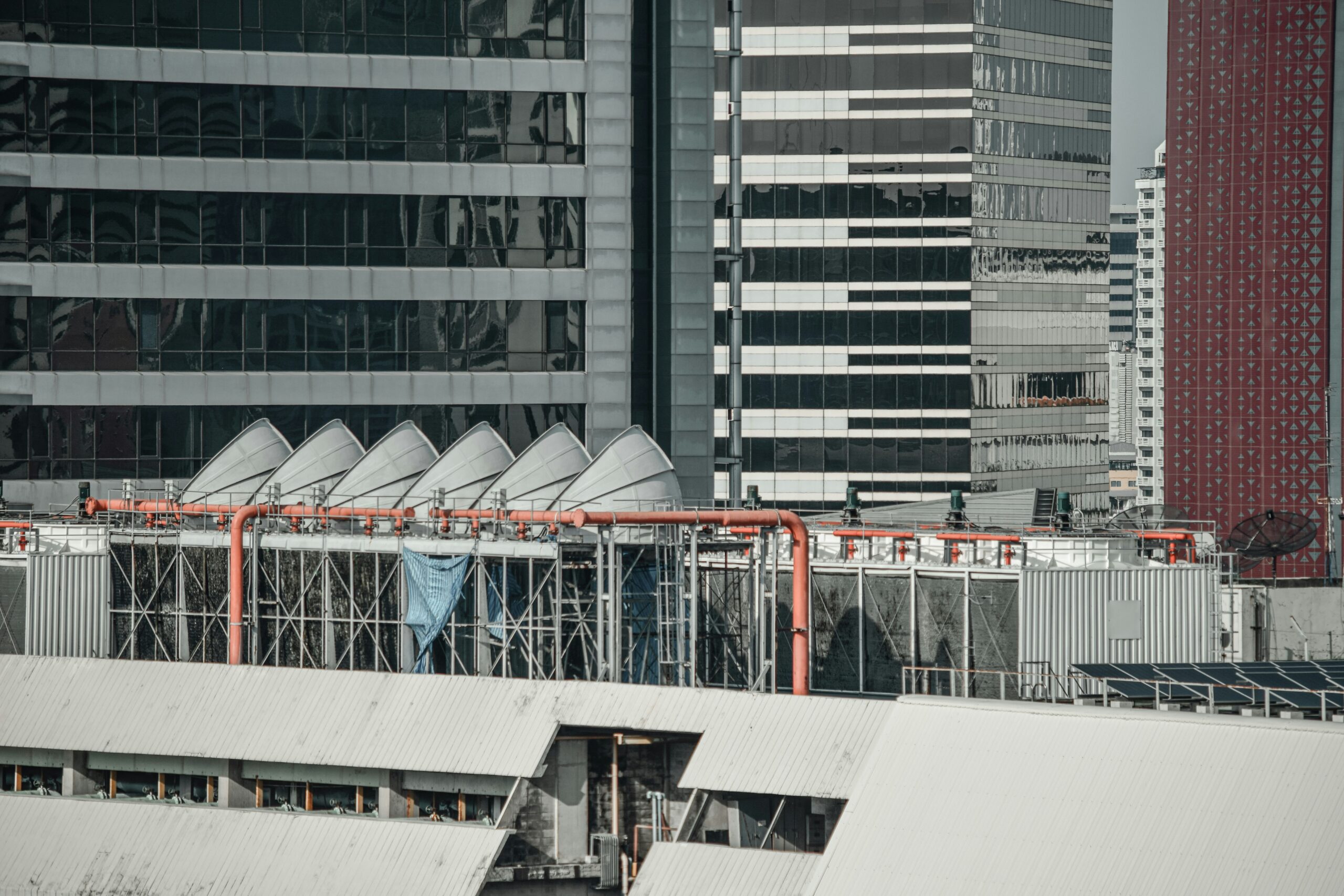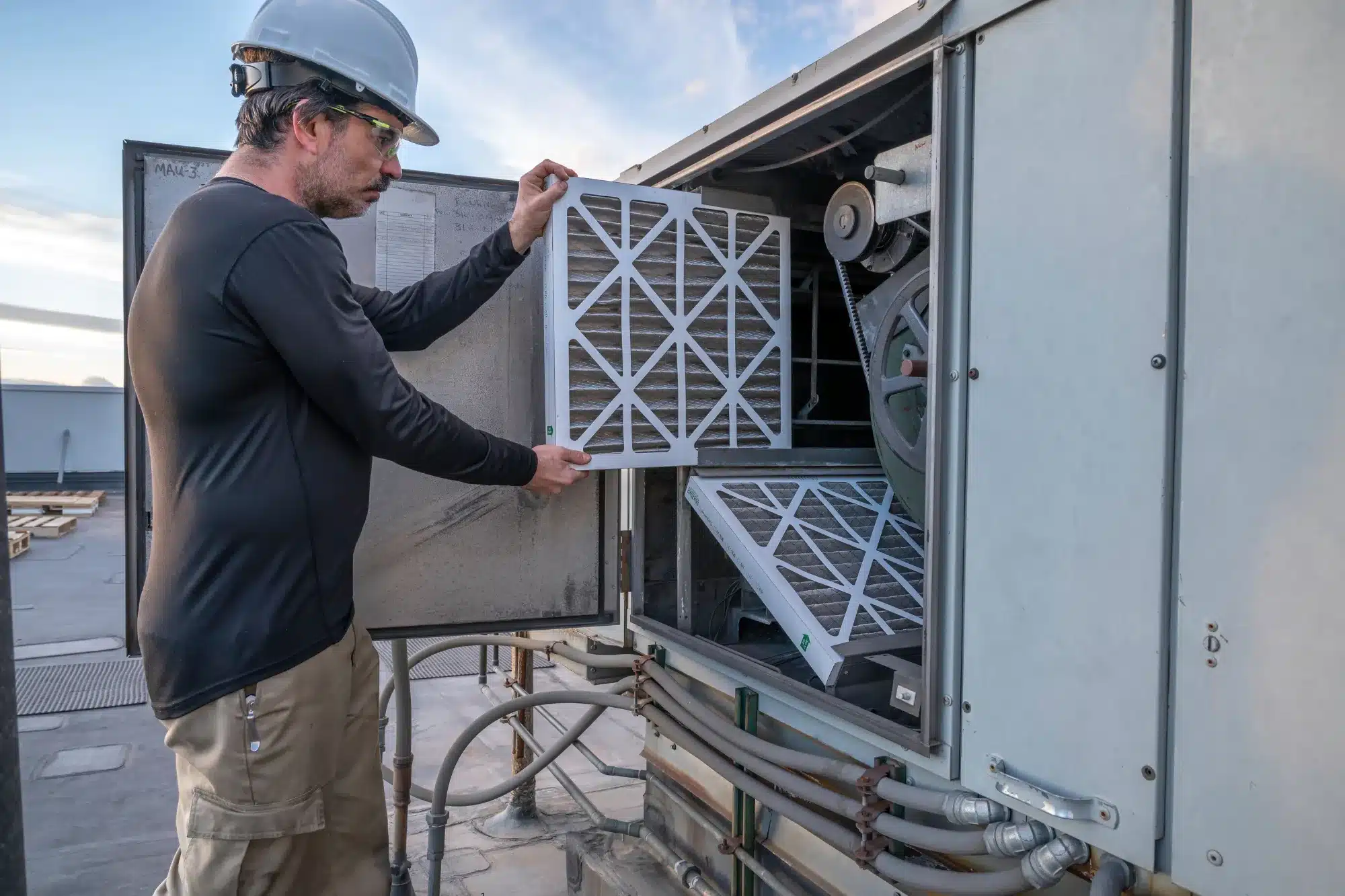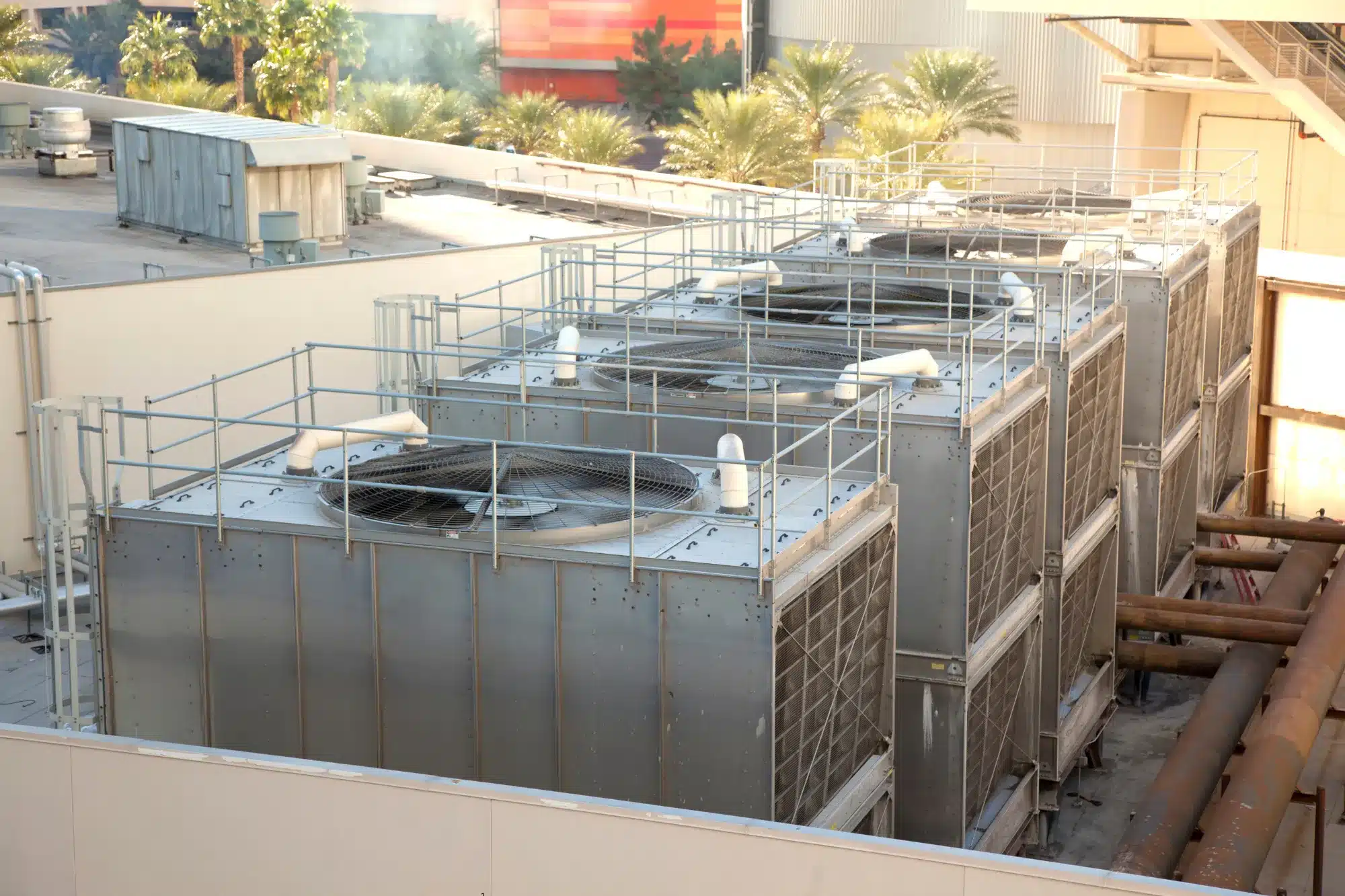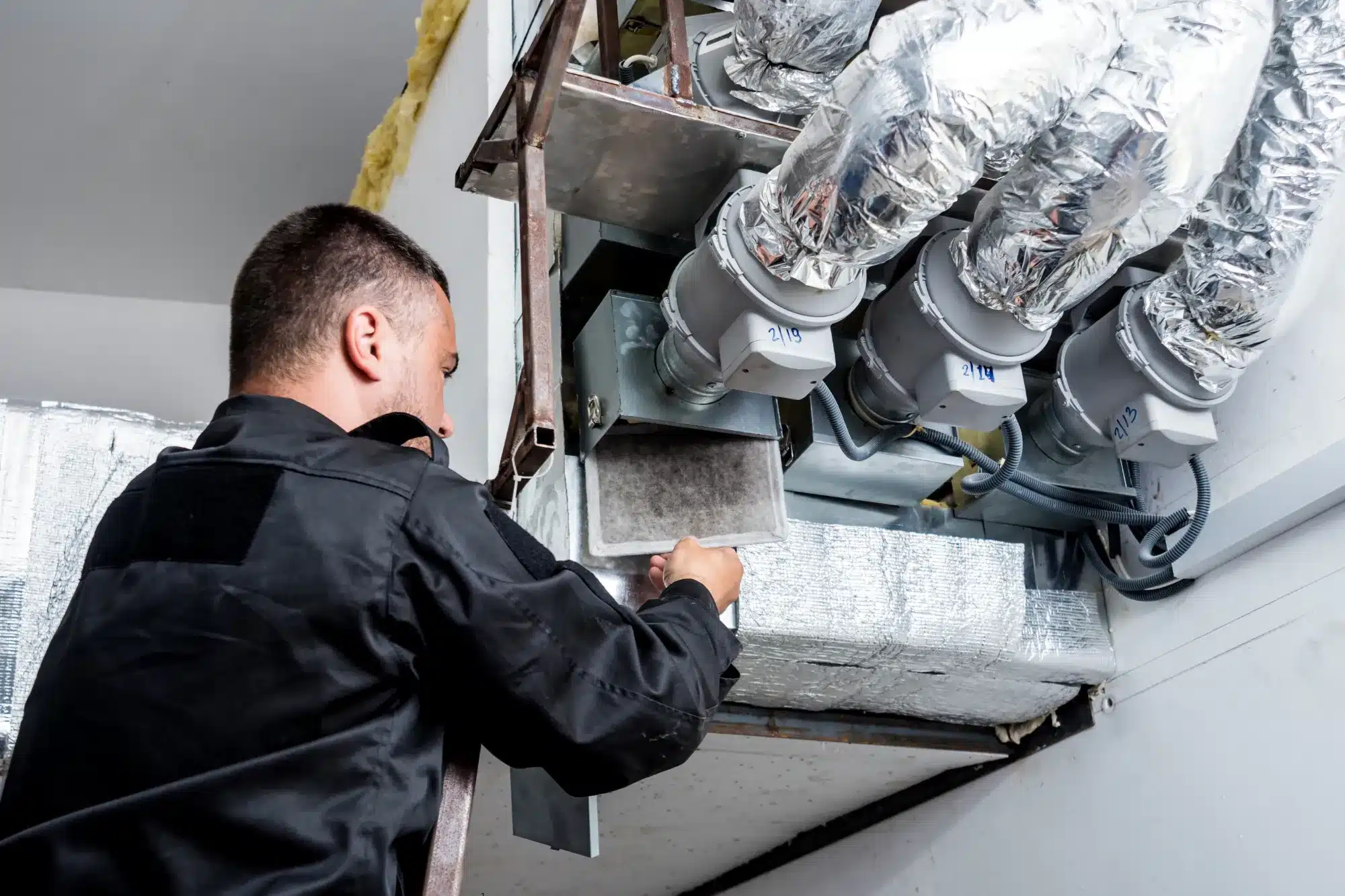
Boost Efficiency With These AC Maintenance Strategies
Commercial air conditioning (AC) systems represent a significant investment for businesses. Effective maintenance is critical to reduce operational costs, extend system lifespans, lower downtime, and maximize energy efficiency. This article examines how preventive maintenance, essential tasks, customized plans, energy-efficient practices, emergency repairs, monitoring, and ROI maximization contribute to optimal commercial AC system performance.
What Are the Key Benefits of Commercial AC Preventive Maintenance?
Preventive maintenance delivers immediate benefits for commercial AC systems by reducing energy consumption, extending system life, and decreasing unexpected breakdowns. Regular servicing addresses wear and tear, prevents leaks and blockages, and ensures that components such as condensers, evaporators, and compressors function efficiently. With smart scheduling and routine checks, companies can avoid costly emergency repairs and minimize downtime during peak business hours.
How Does Preventive Maintenance Reduce Energy Costs?
By optimizing airflow, cleaning coils, and ensuring proper refrigerant levels, preventive maintenance can lower energy consumption by up to 20% in commercial settings. Even small adjustments, like
, improve system efficiency and reduce electricity bills. Early detection of refrigerant leaks also helps prevent energy waste.
In What Ways Does Maintenance Extend AC System Lifespan?
Regular maintenance extends an AC system’s lifespan by lubricating moving parts, tightening electrical connections, and replacing components before failure occurs. This proactive care reduces wear and tear, leads to fewer part replacements, and delays expensive system overhauls, potentially extending the system’s life by 30–50%.
How Can Preventive Maintenance Minimize Downtime and Repairs?
Regular check-ups allow technicians to identify minor issues before they escalate. Addressing these problems during scheduled maintenance rather than during peak hours minimizes downtime and avoids emergency repairs. This continuity is crucial for businesses that depend on a stable indoor climate for productivity and customer satisfaction.
Which Essential AC Maintenance Tasks Boost Efficiency?

Efficiency in commercial AC systems relies on specific maintenance tasks. Routine inspections and cleaning prevent performance degradation. Key tasks such as filter replacement, coil cleaning, refrigerant level checks, and comprehensive inspections work together to ensure optimal cooling and energy management.
Why Is Regular Filter Replacement Critical for AC Performance?
Regular replacement of air filters is vital because clogged filters restrict airflow, forcing the system to work harder and consume more energy. Replacing filters every 1–3 months helps maintain indoor air quality and system performance, reducing the risk of debris buildup that can impair heat transfer efficiency.
How Does Coil Cleaning Improve Cooling Capacity?
Cleaning coils enhances cooling capacity by ensuring effective heat transfer between the refrigerant and the external environment. Dirty coils act as insulation, reducing the system’s ability to reject heat and forcing increased energy use. Regular coil cleaning removes debris and buildup, allowing the system to cool more efficiently while lowering energy consumption.
What Are the Signs That Refrigerant Levels Need Checking?
Indicators such as reduced cooling efficiency, extended run times, unusual noises, or ice formation on coils suggest that refrigerant levels may be low. Detecting these signs during scheduled inspections allows technicians to adjust levels and maintain efficient heat exchange, critical for balancing energy consumption with performance.
How Often Should Commercial AC Systems Be Inspected?
Ideally, commercial AC systems should be inspected at least twice a year, often at the start of the cooling season and after intensive summer use. In high-demand or harsh environments, quarterly inspections may be advisable. Frequent inspections help detect issues early, reduce unexpected breakdowns, and assist in meeting regulatory requirements.
How Can Customized Maintenance Plans Optimize Commercial AC Systems?
Customized maintenance plans are tailored to the unique requirements of each AC system. By considering factors such as the system’s age, usage intensity, environmental conditions, and past performance, these plans optimize maintenance schedules for better efficiency and longevity. They prioritize essential tasks and allow flexible resource allocation, leading to smoother operations and improved energy management.
What Factors Determine the Best Maintenance Schedule for Your Business?
The best maintenance schedule depends on several factors including the AC system’s brand, model, and historical performance, along with operational demands and environmental conditions. Factors like run-time hours, ambient temperature variations, dust levels, and feedback from employees help shape a cost-effective and strategically aligned maintenance plan.
How Do Expert Technicians Tailor Services to Different AC Systems?
Skilled technicians assess each system’s capacity, configuration, and age to develop targeted maintenance strategies. They analyze data logs, perform visual inspections, and use diagnostic tools to determine service intervals, recommend necessary part replacements, and apply system-specific cleaning techniques. This tailored approach minimizes energy waste and extends system lifespan.
What Are the Advantages of Proactive vs. Reactive Maintenance?
Proactive maintenance, regular inspections and scheduled repairs, is far more cost-effective than reactive maintenance, which only addresses failures as they occur. By avoiding unplanned downtime, extending system life, and reducing energy consumption, proactive practices lower repair costs and prevent revenue loss during peak periods.
What Energy-Efficient Practices Enhance AC Maintenance?

Enhancing energy efficiency through smart maintenance practices not only reduces energy consumption but also supports sustainability. Energy audits, system upgrades, and adherence to preventive best practices are key. Incorporating high-efficiency components, programmable controls, and routine calibrations optimizes energy use and contributes to environmental compliance.
How Can Energy Audits Identify AC System Inefficiencies?
Energy audits evaluate an AC system’s performance by measuring airflow, refrigerant levels, and thermal performance. These audits pinpoint areas where energy is wasted, allowing businesses to institute corrective actions, from simple cleaning to major upgrades, to improve overall system performance.
Which Upgrades Improve AC Energy Performance?
Upgrades such as variable speed drives, high-efficiency compressors, smart thermostats, and advanced filtration systems provide better control over system operations and significantly reduce energy consumption. For example, installing a programmable thermostat can optimize operating cycles and reduce energy use by 10–15%.
How Does Proper Maintenance Support Sustainability Goals?
Maintaining AC systems properly reduces energy waste and greenhouse gas emissions while extending equipment life. Efficient operation lowers a building’s carbon footprint and prevents energy-wasting system failures. A comprehensive maintenance plan not only protects the business’s bottom line but also supports corporate sustainability initiatives.
How Do Commercial AC Maintenance Strategies Address Emergency Repairs?
Robust maintenance strategies include protocols for emergency repairs, minimizing system downtime and safeguarding business continuity. Regular inspections paired with predictive maintenance tools enable technicians to anticipate problems and prepare for emergencies, ensuring that repair resources are available when needed.
What Are Common Causes of AC Breakdowns in Commercial Settings?
Common causes include refrigerant leaks, clogged filters, worn compressor components, and dirty coils. Electrical issues like faulty wiring or sensor failures and environmental factors such as excessive dust and humidity also contribute. Recognizing these issues allows facility managers to implement targeted strategies to reduce breakdown risks.
How Can Scheduled Maintenance Prevent Emergency Repairs?
Scheduled maintenance addresses potential issues before they become emergencies. Routine cleaning, part replacements, and recalibrations catch early signs of breakdowns, reducing the likelihood of unexpected failures. Detailed maintenance logs also assist technicians in predicting systemic issues, enabling timely preemptive repairs.
When Should You Contact HVAC Experts for Emergency Service?
HVAC experts must be contacted immediately if a system exhibits severe malfunctions, such as complete shutdowns, long cycles, or visible electrical or refrigerant issues. Prompt professional intervention prevents extended downtime, minimizes damage, and ensures safety.
What Are the Best Practices for Monitoring and Reporting AC System Health?

Monitoring commercial AC systems through regular inspections and digital tools is essential for early problem detection. Maintaining detailed records, using performance tracking software, and conducting routine audits help verify energy efficiency and operational stability while supporting regulatory compliance.
How Do Regular Inspections Support Early Problem Detection?
Regular inspections help identify issues such as component wear or refrigerant leaks before they lead to major failures. Early corrective action reduces emergency calls, enhances indoor air quality, and extends overall system life.
What Tools Help Track AC Efficiency Over Time?
Digital tools like sensor networks, programmable thermostats, and energy management software provide real-time performance data. These systems help facilities managers detect trends, identify areas needing attention, and reduce operating expenses through targeted interventions.
How Should Maintenance Results Be Documented for Business Use?
Maintenance results should be recorded in detailed reports that capture inspection findings, repairs, part replacements, and energy usage. These documents support warranty claims, regulatory compliance, and strategic planning for future maintenance and upgrades using standardized templates.
How Can Businesses Maximize ROI From Commercial AC Preventive Maintenance?
Maximizing ROI from preventive maintenance involves reducing energy consumption, extending system longevity, and ensuring a comfortable indoor climate. An efficiently maintained AC system leads to significant cost savings by preventing emergency repairs, prolonging equipment life, and supporting continuous operations, benefits that boost overall productivity.
What Are the Cost Savings From Reduced Energy Consumption?
Improved system efficiency achieved through regular maintenance can lower energy bills by 15–20%. These savings, alongside reduced repair costs, make preventive maintenance a highly cost-effective strategy for businesses.
How Does Maintenance Improve Employee Comfort and Productivity?
Consistent maintenance ensures stable indoor air quality, temperature, and airflow, key factors in employee comfort. Studies link improved thermal environments to increased productivity and reduced absenteeism, making a well-maintained system beneficial for overall work performance.
What Are the Long-Term Financial Benefits of Proactive AC Care?
Proactive AC care leads to extended system lifespans, delayed replacement costs, and lower repair expenses. Routine maintenance minimizes downtime and supports energy efficiency, resulting in sustained cost savings and potentially higher asset resale values.
Frequently Asked Questions
Q: How often should a commercial AC system be maintained? A: Most systems benefit from biannual maintenance, with quarterly checks advised in high-demand environments.
Q: What preventive tasks are crucial for AC maintenance? A: Key tasks include filter replacements, coil cleaning, refrigerant level checks, and regular system inspections.
Q: How does regular maintenance lower operational costs? A: Routine maintenance reduces energy usage, minimizes emergency repairs, and extends component life.
Q: When should I schedule an energy audit for my AC system? A: An annual energy audit is recommended to identify inefficiencies and guide necessary upgrades.
Q: What ROI improvements can maintenance provide? A: Preventive maintenance can lower energy bills by up to 20%, extend equipment life, and enhance productivity.
Final Thoughts
Efficient commercial AC maintenance is essential for reducing energy usage, extending system life, and minimizing downtime. By adhering to scheduled inspections and customized care plans, businesses can lower operating costs and improve system reliability. Investing in proactive maintenance and energy audits not only saves money over the long term but also creates a more sustainable, comfortable work environment.
